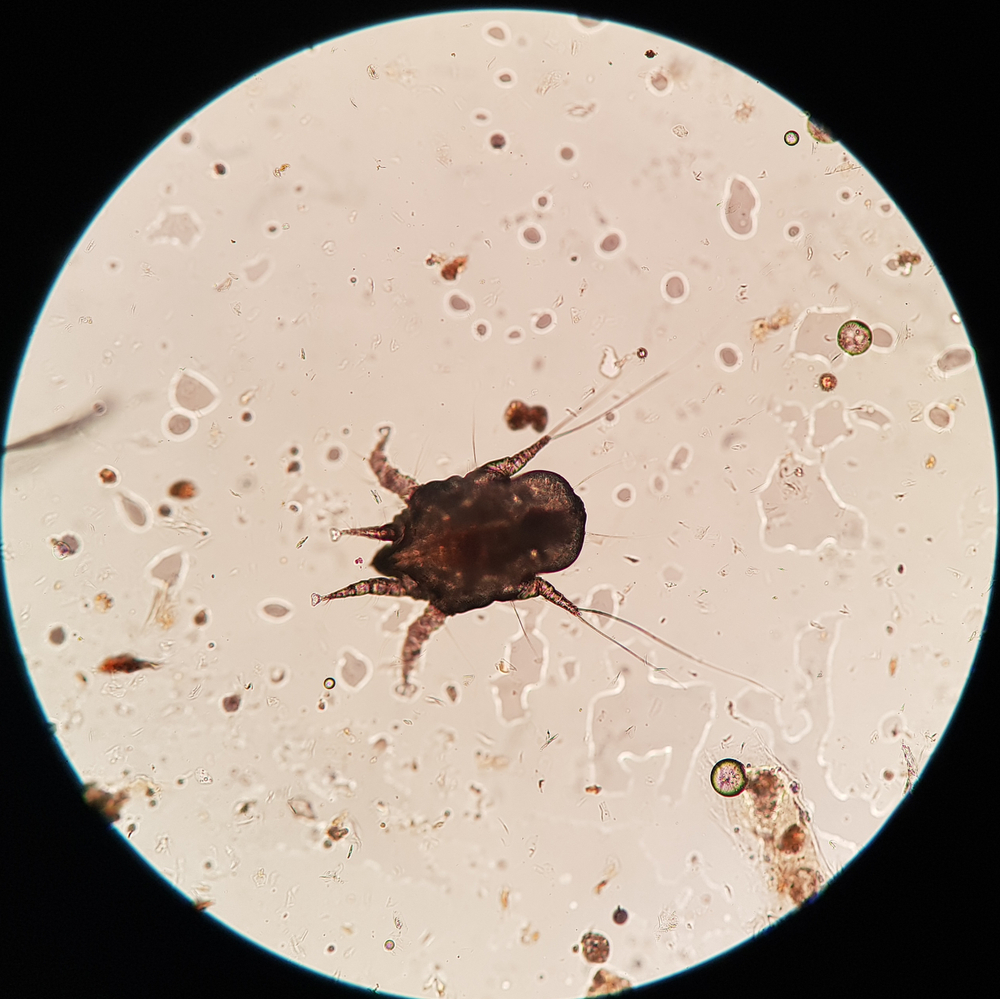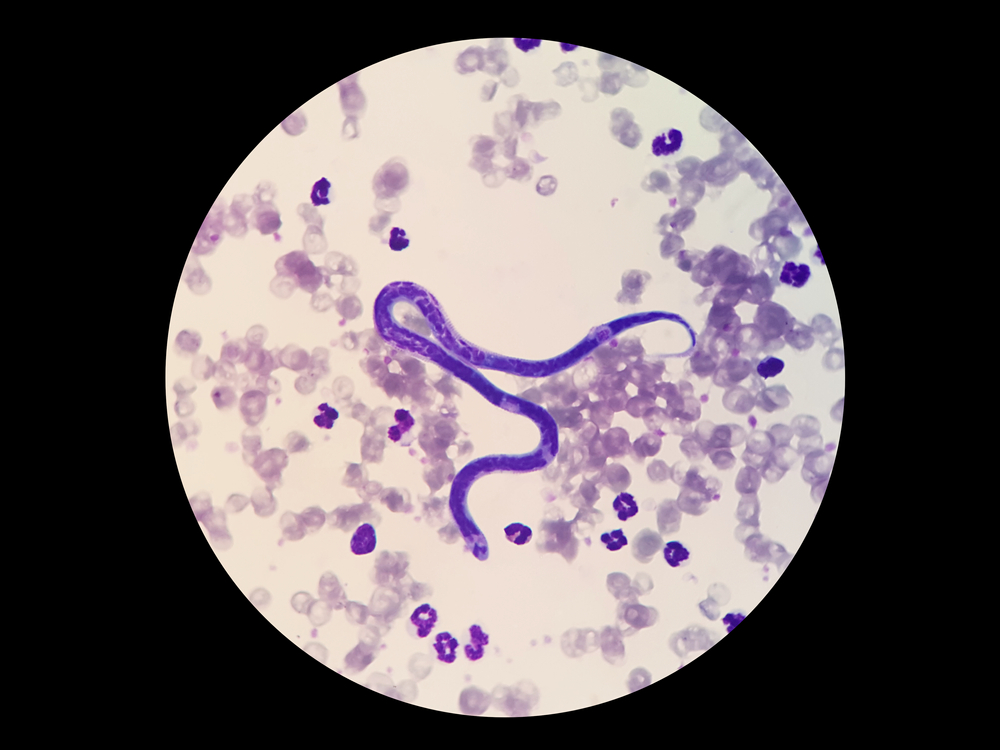You cannot always see them, but tiny parasites can cause major illnesses in your furry pal. They can lurk in your pet’s fur, their intestines, their ears, and your carpet. While treatment often can be challenging, prevention is simple. Read on to learn about the most common parasites that may affect your pet, and how to keep your pet safe.
Internal parasites in pets
While most internal parasites reside in your pet’s intestines, one particularly nasty pest seeks out the blood vessels surrounding the heart and lungs. Your pet can also contract lungworms, esophageal worms, and tracheal worms, although they are much less common than intestinal parasites. The most common internal parasites found in pets include:
- Roundworms — Roundworms, the most common intestinal parasite found in pets, are routinely found in puppies and kittens. A young pet who is infected with a large number of roundworms can be stunted in their growth and have digestive upsets and a pot-bellied appearance. These spaghetti-like worms can be seen in the pet’s stool, and their vomit. Pets need only to ingest the eggs in an infected animal’s feces to become infected themselves, so they can easily pick up roundworms on a walk around the block, at the dog park, or in your backyard.
- Hookworms — Hookworms can cause serious infections in pets, since they attach to the small intestine lining to feed on blood, and can cause anemia, particularly in young or small pets. Hookworm larvae infect your pet by burrowing through the skin or by being ingested, and your infected pet may have diarrhea or dark, tarry stool.
- Tapeworms — Tapeworms often appear as tiny grains of rice—which are tapeworm egg segments—stuck to your pet’s tail or around their rectum. Most commonly, pets contract tapeworms when they eat an infected flea that contains tapeworm larvae, which then develop in your pet’s small intestine. Cats can also contract a tapeworm species by eating small mammals and birds. In general, tapeworms rarely cause illness, but heavy infections can cause an intestinal blockage.
- Heartworms — Heartworms are transmitted through an infected mosquito’s bite, and reside in your pet’s heart and adjacent blood vessels. Dogs are the heartworms’ preferred host, but cats can also develop this potentially fatal disease. Heartworm disease signs in dogs include coughing, exercise intolerance, fatigue after activity, decreased appetite, and weight loss. As the disease progresses, the dog may develop congestive heart failure, which causes their abdomen to bloat from fluid backup. Heartworm disease in cats appears differently than in dogs, and often looks like asthma. Infected cats may cough, breathe rapidly, wheeze, lose weight, and vomit. They may also suddenly become blind or collapse—sudden death is often the first and only heartworm disease sign in cats. Heartworm disease can be treated in dogs, although the process is difficult, lengthy, and costly. No treatment is approved for cats, and support and symptom management are the only options.
External parasites in pets

External parasites are those that reside on your pet’s skin. Some occur naturally, but can cause problems if their population skyrockets. The most common external parasites seen in pets include:
- Fleas — These annoying pests not only lurk in your pet’s fur, but also in your carpet, on your furniture, and in any spot your furry pal rests. Fleas are extremely hardy creatures that are difficult to eradicate once an infestation develops, and you must treat your pet and your home to eradicate the flea population. Additionally, many pets are allergic to flea saliva, which can cause severe itchiness from only a single flea bite.
- Ticks — Ticks attach to your pet’s skin, take a blood meal, and transmit a multitude of pathogens. The most common tick-borne diseases, including Lyme disease, ehrlichiosis, anaplasmosis, and Rocky Mountain spotted fever, can cause lameness, lethargy, bleeding disorders, and neurological problems, and can have lifelong effects.
- Mites — Several mite species can infect your pet. Some mites reside on their skin and can cause itching and hair loss, while another type of mite resides in your pet’s ears, and feeds off the debris. Some mites, including the type that causes sarcoptic mange, are contagious and can be passed between pets and people.
The bad news—internal and external parasites can cause serious illness and disease in your pets. The good news—they are easily preventable by administering flea, tick, and heartworm prevention medications. Call Parker Center Animal Clinic to discuss the options with our team. We will help you determine the best prevention method for your pet.






